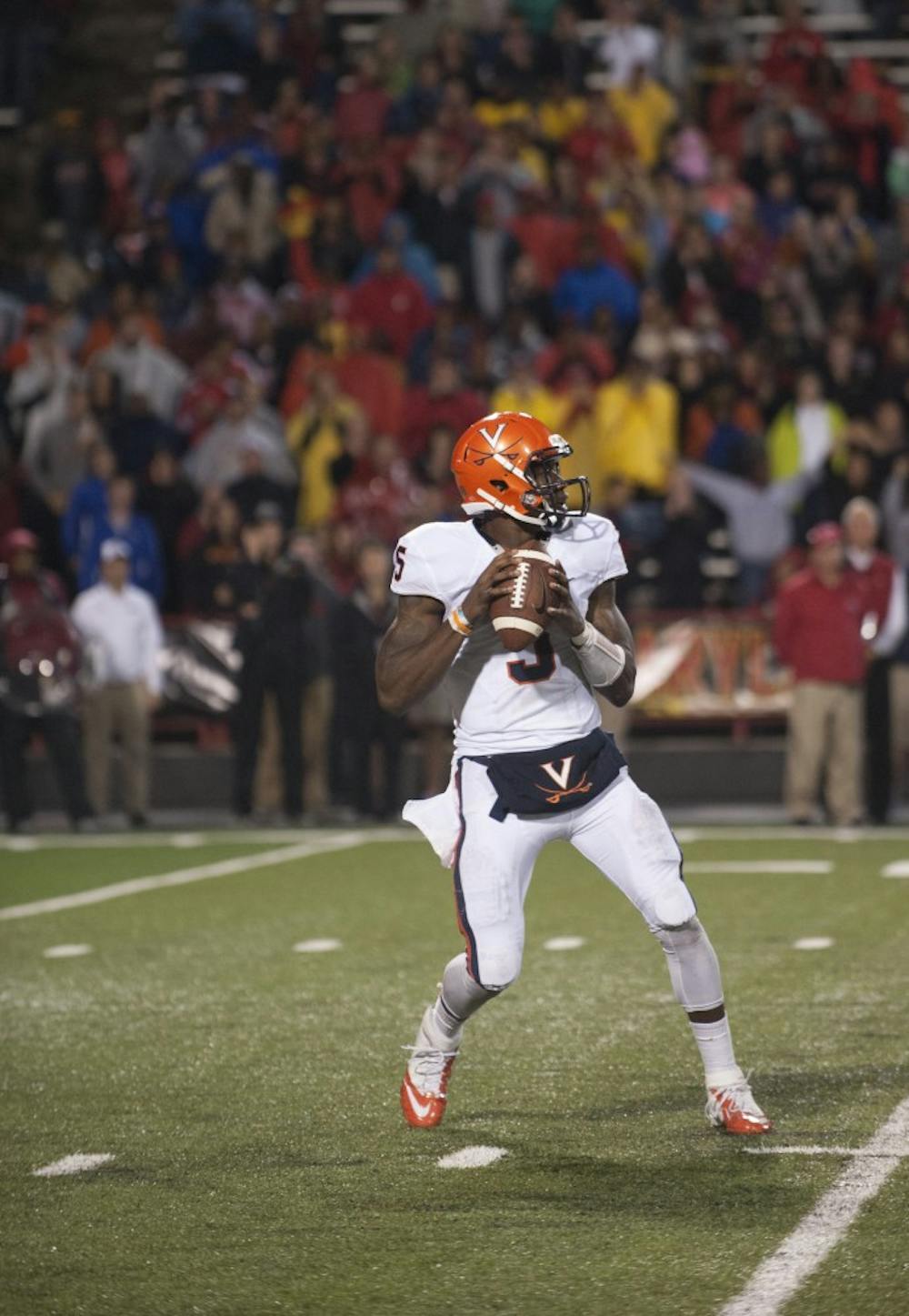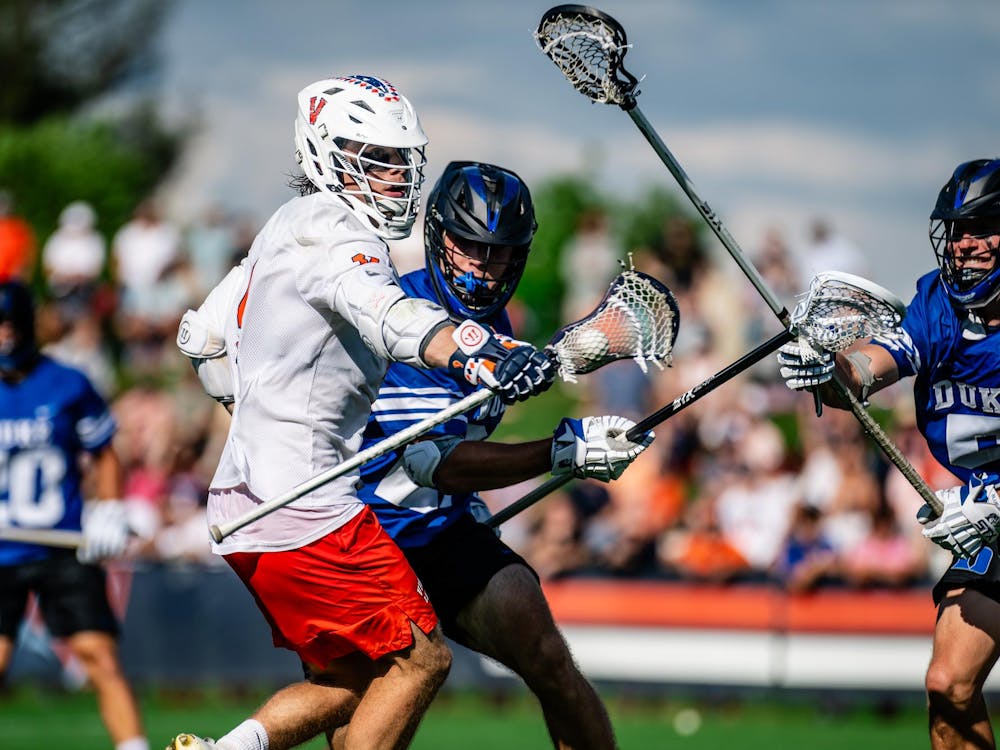When Drew Storen lumbered off the mound during the Washington Nationals’ Game 5 loss in last season’s NLDS against the St. Louis Cardinals — his head bowed, his face strained — I was heartbroken. For hours, I agonized. For weeks, I wondered what could have been. To this day, I think about how things could have gone differently if only the ball had broken our way, if only we had been able to record just one more out.
For Nationals fans, that day evoked a feeling that is all too familiar to anyone that has invested his heart and soul into a sports team: crushing disappointment. It is a sensation that occurs when naïve optimism is replaced with unfulfilled emptiness. Moments like those form callouses for sports fans, and turn cocksure cheerleaders into pained cynics.
But nights like Oct. 12, 2012 — when the Nationals’ 6-0 lead and fairytale season proved fleeting — do not undermine my sports fandom. Emotions can only be that sharp when the pain is real, when a loss by 25 players that I have never met feels so personal.
No, the days that make me question my love of sports are days like Oct. 12, 2013, when the Virginia football team lost 27-26 to Maryland in College Park. On the one-year anniversary of the Nationals’ collapse, junior Alec Vozenilek missed a potential game-winning field goal in the final seconds to hand the Cavaliers their third straight loss, this time in brutal fashion.
Yet as Vozenilek trudged off the field wearing the same pained look that Storen displayed one year earlier, I was not heartbroken. Instead, I felt utter apathy.
What started for me as frustration with fixable mistakes and manufactured quarterback controversies has become an expectation of failure. Now, when a punt returner commits a fumble because of an inexplicable lack of focus, I don’t blink. When David Watford misses a receiver by five yards, I say nothing. When Vozenilek misses a potential game-winning kick in a conference matchup, I don’t react.
Mistakes have become so routine that I have lost the emotional investment needed to feel disappointment with Virginia football.
My dispassionate response to Vozenilek’s miss made me realize that for a sports fan, indifference is a far worse fate than disappointment. That is the moment when the beautiful distraction that is sports stops being distracting.
When a diehard fan sees his team falter, he spends an offseason eagerly awaiting the start of the next season to see if his team can pick itself up. He may criticize the organization, but he stays engaged and interested. But eventually, a fan base may become so disillusioned that they stop complaining about failure, chiding the team’s decision-makers and putting brown paper bags over their head to signify their disgust. Instead, they stop paying attention.
Disappointment is not a death sentence for a sports team. But apathy is. And apathy is the most fitting word to describe most Cavalier fans’ current relationship with their football team. At this point, it’s hard to blame them.
Since the fall of 2011, when Virginia raced out to an 8-3 start to move within one win of an ACC Championship appearance, the situation in Charlottesville has only gone south. Beginning with a 38-0 loss to Virginia Tech in Charlottesville Nov. 26, 2011, the Cavaliers have lost 14 of 20 games. That stretch has included timeout-gate in the rematch against the Hokies, the Phillip Sims fiasco of 2012 and the firing of four assistant coaches last offseason.
Through it all, players appear to have lost their swagger and any semblance of poise on the field. Self-inflicted wounds and apparently institutional incompetence in certain areas — like consistently error-prone special teams units — have steadily eroded my enthusiasm for Saturday afternoons. I am not alone. The attendance at Virginia’s 48-27 loss to Ball State Oct. 5 was just 38,228, the smallest at Scott Stadium since 2010.
Sports fans are notoriously fickle, and perhaps a string of impressive wins could reenergize the Cavalier faithful. But for the foreseeable future, with other teams at the University forming more meaningful bonds with their fan bases, it is hard to imagine a scenario that sees fans returning to Scott Stadium in force for the final four home games of the season.
On Saturday afternoons for the next three weeks, when University students are deciding whether to go to football games, they will remember. They will remember Ball State, Oregon and Pittsburgh. Bad throws. Turnovers. Penalties. Poor play calling. Poor execution. Those experiences aggregate, eventually sending the message to fans loud and clear: don’t bother.
Don’t bother cutting short Thanksgiving break to come see Virginia Tech play in Charlottesville in the season finale Nov. 30. Don’t bother stopping your family vacation when, in the last rendition of the Commonwealth showdown, coach Mike London failed to use his timeouts to stop the clock and give his team a chance. Don’t even bother watching, because the result is likely to be the same as it has been the last nine times we have faced the Hokies: defeat.
I wrote earlier this year that London should be given until the end of next season before fans and analysts begin speculating about his future. I stand by that sentiment. London has changed the culture of the team in the past three years and attracted some of the nation’s top recruits to sign onto to play at the University. Now is not the time to declare failure and start over, especially with the historic recruiting class of 2014 watching the developments in Charlottesville closely.
But there is a growing recognition among fans that the current state of affairs cannot continue indefinitely. Either the team will begin correcting its myriad shortcomings and wins will follow, or drastic changes will occur. The alienation of fans from the marquee sport at the University cannot last, or it will threaten the long-term health of the program.
For the next month and a half, players and coaches will continue to give it their all to turn a corner and revive their season. But it is unlikely that many students will come along for the ride. Many of them have turned their attention to other interests. For me, I’ve started asking one question.
When do the Nationals start Spring Training?







